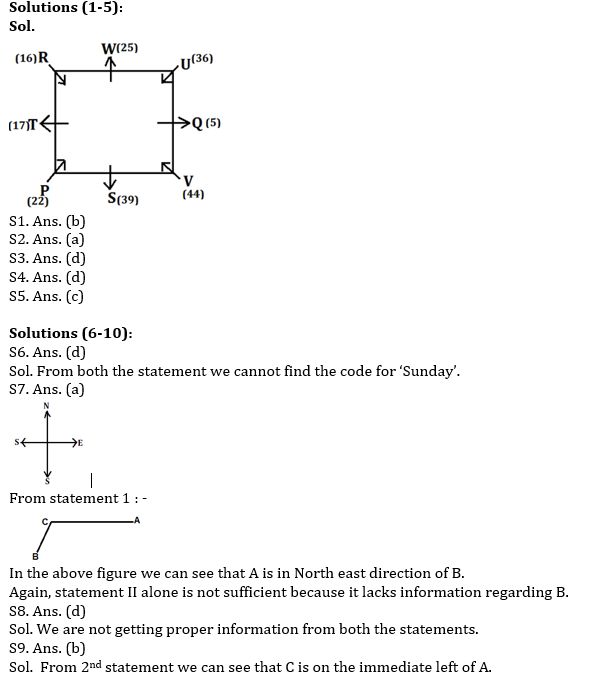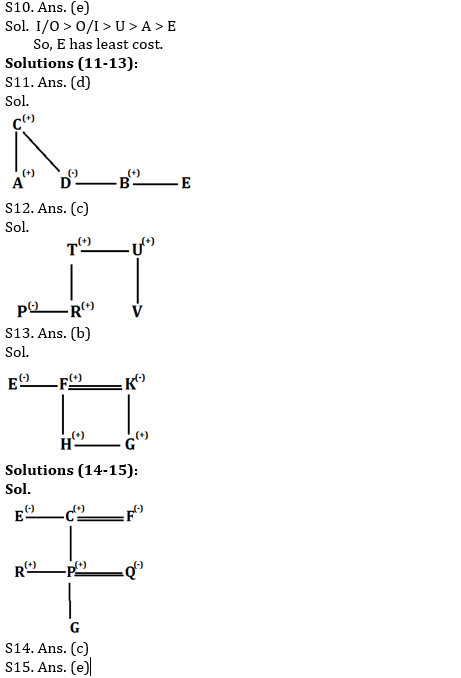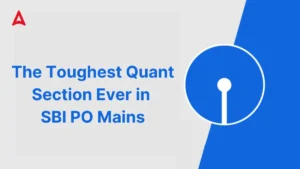Table of Contents
Direction (1-5): Study the following information carefully and answer the questions given below-
Eight persons are sitting around a square table. All of them have different number of books. Persons who sits at corner have even number of books and faces inside while persons who sits middle of the side have odd number of books and faces outside. The person who has highest number of books is 44.
U sits third to the right of T. R sits third to the right of S who has second heights number of books. R is not an immediate neighbour of U. V sits second to the right of the one who sits third to the left of W. Q sits second right of the one who has square of an odd number of books. W has 11 books less than U. P has even number of books but 6 more than R. Q has 5 books. V has 5 books more than S. P has just half number of books than V who sits second to the right of P. U has number of books which is square of an even number. T has only one book more than R and he is not an immediate neighbour of V.
Q1. Who among the following has 39 books?
(a) R
(b) S
(c) U
(d) T
(e) V
Q2. Who among the following sits second to the left of W?
(a) the one who has 17 books
(b) U
(c) S
(d) the one who has 22 books
(e) Q
Q3. Who among the following sits second to the right of the one who third to the left of S?
(a) W
(b) Q
(c) T
(d) R
(e) P
Q4. Four of the following five from a group, which among the following does not belong to this group?
(a) T
(b) the one who has 5 books
(c) S
(d) the one who has 36 books
(e) W
Q5. What is the position of V with respect to U?
(a) Immediate left
(b) Second to the right
(c) Second to the left
(d) Third to the right
(e) Fourth to the left
Directions (6-10): Each of the questions below consists of a question and two statements numbered I and II given below it. You have to decide whether the data provided in the statements are sufficient to answer the question. Read both the statements and give answer.
(a) If the data in statement I alone are sufficient to answer the question, while the data in statement II alone are not sufficient to answer the question.
(b) If the data in statement II alone are sufficient to answer the question, while the data in statement I alone are not sufficient to answer the question.
(c) If the data either in statement I alone or in statement II alone are sufficient to answer the question.
(d) If the data in both statements I and II together are not sufficient to answer the question.
(e) If the data in both statements I and II together are necessary to answer the question.
Q6. How is ‘sunday’ written in a code language?
I. ‘January march sunday april monday tuesday’ is written as ‘dd ee jj oo tt yy’ in that code language.
II. ‘June monday july april march tuesday’ is written as ‘dd ee ll oo ww yy’ in that code language.
Q7. A is in which direction of B?
I. C is towards west of A and towards North-east of B.
II. C is towards south of D, which is towards North-east of A.
Q8. Amongst U, V and W, who scored the highest number of runs in the series XYZ?
I. Total score made by U and W was more than V’s Score.
II. Number of total centuries and fifties made by V were higher than U and W both, in the series.
Q9. A, B, C, D, E and F are sitting in a circle, facing towards the centre of the circle. Who is sitting on the immediate left of A?
I. A is facing D. Only C is between A and B. F is between E and A.
II. F is on the immediate left of E. Only D is between B and E. C is not adjacent to F.
Q10. Amongst A, E, I, O and U, which book is having the least price?
I. Price of the book U is less than those of I and O only.
II. Price of A is less than O and more than E.
Directions (11-13): Each of these questions is based on the following information:
(i) P % Q means P is the father of Q.
(ii) P @ Q means P is the sister of Q.
(iii) P $ Q means P is the brother of Q.
(iv) P * Q means P is the son of Q.
Q11. In the expression A * C % D @ B $ E, how is C related to E?
(a) Grand father
(b) Mother
(c) Sister
(d) father
(e) None of these
Q12. In the expression P @ R * T $ U % V, how is U related to P?
(a) father
(b) Cousin
(c) Uncle
(d) Mother
(e) None of these
Q13. Which of the following expression shows E is aunt of G?
(a) E @ F % H * G $ K
(b) E @ F % H $ G * K
(c) G $ F % H @ E * K
(d) F % E $ G * H @ K
(e) None of these
Directions (14-15): Study the given information and answer the questions:
There are seven members in a family, in which two married couples. F is mother of R. E is aunt of P. C is father-in- law of Q who is not wife of R. C is brother of E. Q is mother of G. F is sister in law of E. R is male.
Q14. Who among the following sister in law of R?
(a) E
(b) P
(c) Q
(d) G
(e) None of these
Q15. How G is related to F?
(a) Grandmother
(b) Sister
(c) Grandfather
(d) Father
(e) Can’t be determine
Practice More Questions of Reasoning for Competitive Exams:
Solutions


Download PDF of this Reasoning Quiz for IBPS PO/RBI Assistant Mains 2020
Practice with Crash Course and Online Test Series for IBPS PO/RBI Assistant 2020:
- RBI Assistant Mains 2020 Online Test Series
- IBPS PO Online test series (Prelims + Mains) 2020 by Adda247
- IBPS KA MAHAPACK Online Live Classes




 GA Capsule for SBI Clerk Mains 2025, Dow...
GA Capsule for SBI Clerk Mains 2025, Dow...
 The Hindu Review October 2022: Download ...
The Hindu Review October 2022: Download ...
 The Toughest Quant Section Ever in SBI P...
The Toughest Quant Section Ever in SBI P...




